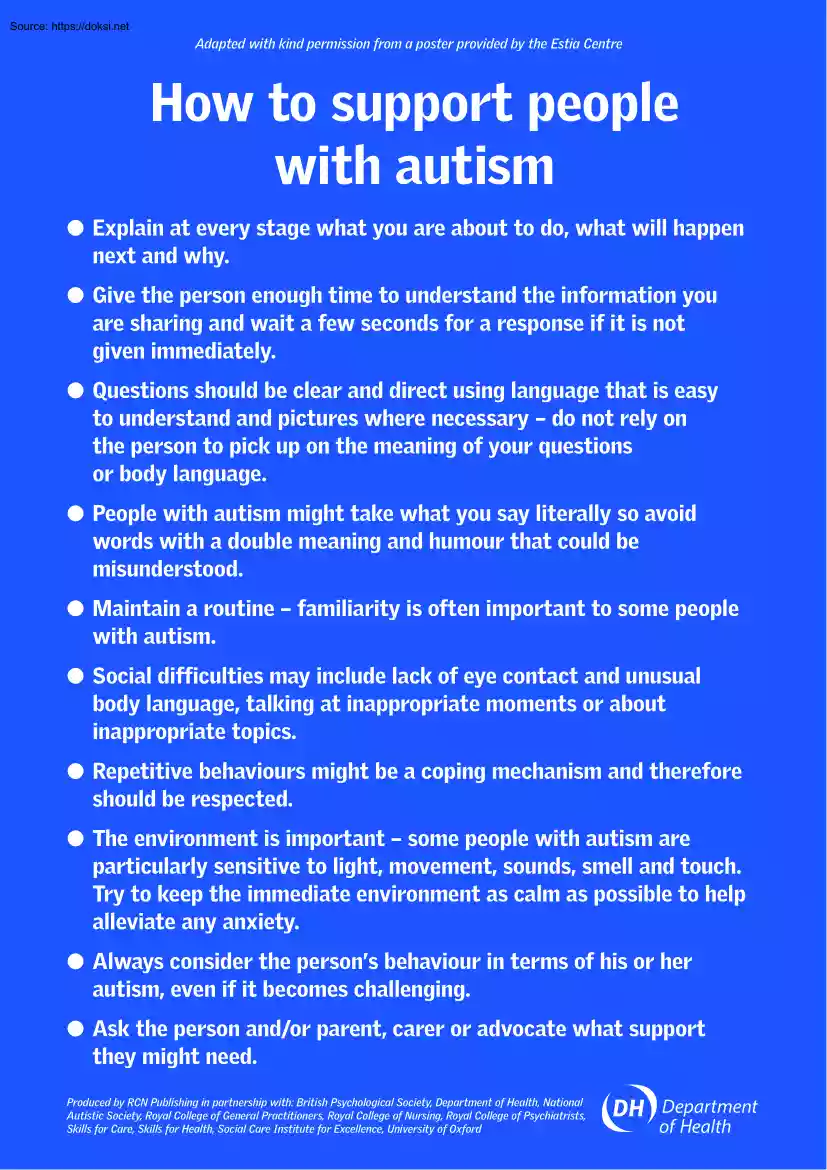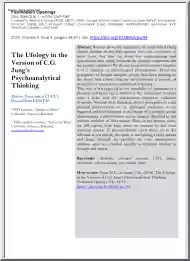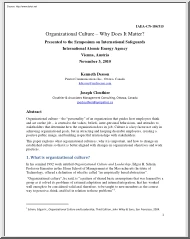Please log in to read this in our online viewer!

Please log in to read this in our online viewer!
No comments yet. You can be the first!
What did others read after this?
Content extract
Adapted with kind permission from a poster provided by the Estia Centre How to support people with autism Explain at every stage what you are about to do, what will happen next and why. Give the person enough time to understand the information you are sharing and wait a few seconds for a response if it is not given immediately. Questions should be clear and direct using language that is easy to understand and pictures where necessary – do not rely on the person to pick up on the meaning of your questions or body language. People with autism might take what you say literally so avoid words with a double meaning and humour that could be misunderstood. Maintain a routine – familiarity is often important to some people with autism. Social difficulties may include lack of eye contact and unusual body language, talking at inappropriate moments or about inappropriate topics. Repetitive behaviours might be a coping mechanism and therefore should be respected. The environment is
important – some people with autism are particularly sensitive to light, movement, sounds, smell and touch. Try to keep the immediate environment as calm as possible to help alleviate any anxiety. Always consider the person’s behaviour in terms of his or her autism, even if it becomes challenging. Ask the person and/or parent, carer or advocate what support they might need. Produced by RCN Publishing in partnership with: British Psychological Society, Department of Health, National Autistic Society, Royal College of General Practitioners, Royal College of Nursing, Royal College of Psychiatrists, Skills for Care, Skills for Health, Social Care Institute for Excellence, University of Oxford
important – some people with autism are particularly sensitive to light, movement, sounds, smell and touch. Try to keep the immediate environment as calm as possible to help alleviate any anxiety. Always consider the person’s behaviour in terms of his or her autism, even if it becomes challenging. Ask the person and/or parent, carer or advocate what support they might need. Produced by RCN Publishing in partnership with: British Psychological Society, Department of Health, National Autistic Society, Royal College of General Practitioners, Royal College of Nursing, Royal College of Psychiatrists, Skills for Care, Skills for Health, Social Care Institute for Excellence, University of Oxford




